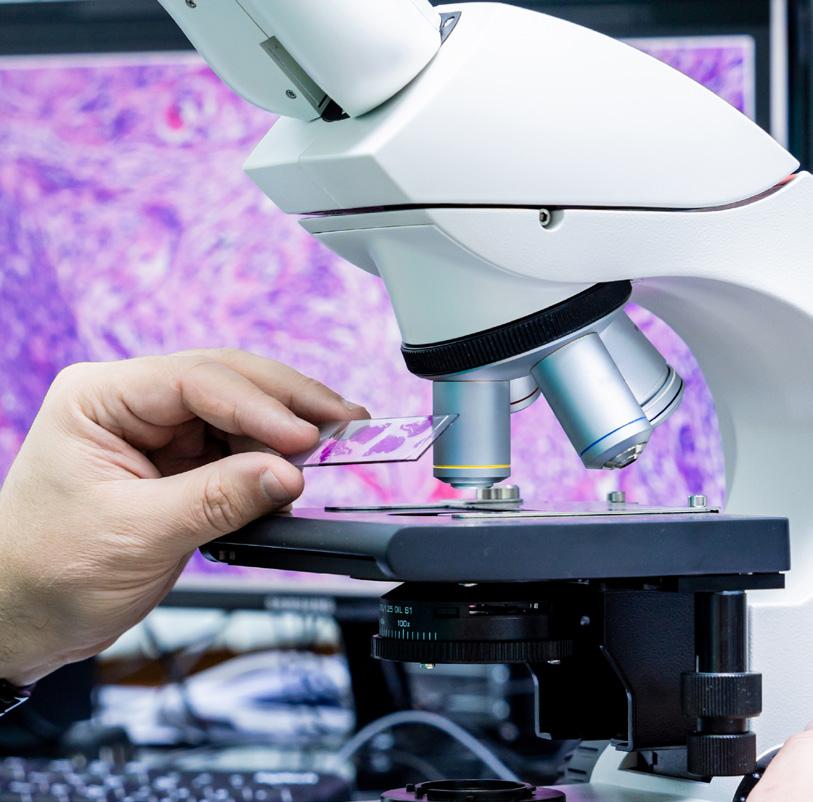
SCAN TO VIEW THE CURRICULUM FOR THIS MAJOR


SCAN TO VIEW THE CURRICULUM FOR THIS MAJOR
Histotechnology is the study of microscopic sections of biological tissues for the purpose of diagnosing and treating diseases. A histotechnologist works with pathologists to prepare tissue samples for analysis. Special reagents, chemicals, and dyes are used by a histotechnologist to aid in the visualization of both healthy and diseased tissue and cell samples.
The job outlook for histotechnologists continues to show growth. According to the U.S. Bureau of Labor Statistics, employment in the field is projected to increase 5% between 2023 and 2033. The median annual wage for a histotechnologist in Illinois in 2024 was $72,615 (ZipRecruiter).
USF’s Histotechnology program prepares students to become certified histotechnologists through a 3+1 program. The first three years of coursework are completed at the University of St. Francis’s Joliet campus. The fourth year is completed at Northwestern Memorial Hospital. It is important to note that admission to the University of St. Francis does not guarantee admission to the professional phase of the program. Students apply for the professional phase of the program during the fall semester of their junior year.
Graduates who successfully complete the professional phase of the program become eligible to sit for the American Society for Clinical Pathology (ASCP) histotechnologist (HTL) certification exam.
As a program manager with a degree, I’ve seen how transformative a histotechnology program can be. It gave me the foundation for a rewarding lab career, and now I have the privilege of mentoring future histotechnologists.
My students graduate with confidence, hands-on experience, and the skills employers are actively seeking—at a time when demand has never been higher.”
— Desiree Robledo, HTL (ASCP)CM, QIHCCM, Histotechnology Program Manager
A bachelor’s degree in Histotechnology opens doors to exciting, high-demand careers across the country. You can work in clinical labs helping diagnose diseases, or in forensic labs analyzing tissue to solve crimes. Love animals? Veterinary labs need your skills, too. Into research? Your work can advance science and medicine. Prefer leadership? Move into lab management or become a specialist helping labs use cutting-edge tech. Whether you’re into health care, science or technology, histotechnology offers a rewarding path with strong job prospects, hands-on experience, and room to grow.
For the first three years of the program, Histotechnology majors take liberal arts and science courses such as human anatomy, microbiology, genetics and organic chemistry. These courses prepare students for the fourth year of the program at Northwestern Memorial Hospital. There, students will learn the theory and application of histotechnology, including grossing and fixing (examining, describing, trimming and embedding a specimen before preserving it), processing (preparing and embedding a specimen in paraffin), sectioning (slicing thin portions of a specimen and mounting it on microscope slides), and staining (applying dyes, antibodies, and/or DNA probes to a specimen).
ACCREDITATIONS
The University of St. Francis is accredited by the Higher Learning Commission (hlcommission.org), a regional accreditation agency recognized by the U.S. Department of Education, and is authorized to operate as a post-secondary institution by the Illinois Board of Higher Education (ibhe.org).